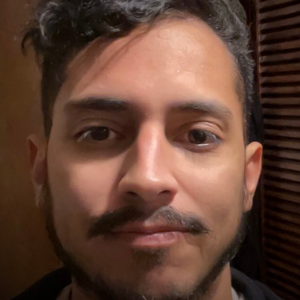WorldBeat Center’s founder connects with the community after the pandemic
A journey into Makeda Dread’s life and her impact on San Diego
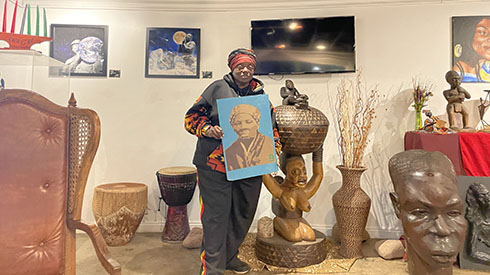
WorldBeat Cultural Center founder Makeda ‘Dread’ Cheatom holds a piece of African art. Photo by Aldo Ramirez/City Times Media
December 2, 2021
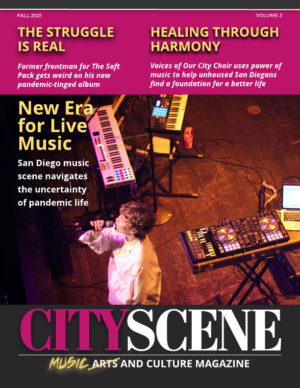 This story was featured in the fall 2021 edition of CityScene magazine.
This story was featured in the fall 2021 edition of CityScene magazine.
Every city has its own heroes, people that contribute to society and set an example on how to give back to their own community and subsequently help with the uprising of a society.
This is the case of Makeda “Dread” Cheatom founder of the WorldBeat Cultural Center.
Cheatom was born in 1942 in Paducah, Texas, Cheatom moved out to San Diego when her father, an Air Force Military airman, was transferred to North Island Naval Air Station three months after she was born.
Cheatom attended San Diego High School in the early ’60s and continued to study culinary arts and food services at San Diego City College and San Diego Mesa College.
“We came to Linda Vista, afterwards they started building houses, we called them cracker-boxes, with no insulation, it was government housing,’’ Cheatom said. “Later on, I knew I would have to look into my profession, and I thought it was better to do culinary arts and I became a chef.”
After opening the first vegetarian restaurant in San Diego in 1971, Cheatom found herself working as a chef for visitors that included celebrities such as George Harrison, Dick Gregory and Jane Fonda.
“I’ll never forget that experience,” Cheatom said as she recalled an anecdote with George Harrison, lead guitarist of the Beatles.
Prophet International Vegetarian Restaurant, as it was know then, was a non-smoking restaurant that had been recognized for its efforts by the American Lung Association. But Harrison wanted a meal and to smoke.
“So he ate but he was not happy,” Cheatom remembered, “but he died from lung cancer, so I know he forgives me now.”
Cheatom then founded the San Diego WorldBeat Cultural Center in 1989, converting an old and forgotten water tank at the edge of Balboa Park on Park Boulevard into a renowned cultural venue.
Early on, Cheatom’s requests to have a building in the park were rebuffed. She remained persistent.
“I thought man, we’re gonna have to do it ourselves,” Cheatom said.
Inspired by Bob Marley’s music, Cheatom wanted to create a platform for reggae music and African culture in San Diego.
“There was no black culture here,” Cheatom said. “There was not about Africa, as a young African activist in America I wanted to fight for that.”
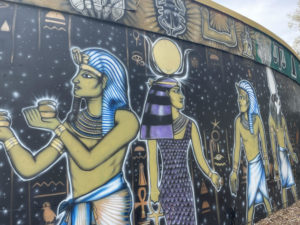
Supporting and organizing reggae music concerts since 1980, Cheatom has produced over 39 annual music festivals, although as we all know with COVID-19 came the closing of music venues and cultural centers, and with that WBCC closed from March 2020 until its recent reopening in September.
Following the state’s COVID-19 health regulations, the center has sought different alternatives to overcome the pandemic such as offering outdoor classes or presenting virtual events to keep the engagement with the community.
She also still produces and hosts Reggae Makossa, a radio show that represents and spreads the message of love, unity and justice for all the oppressed people in the world.
The show airs Fridays from 8-9 p.m. on 102.5 FM and is transmitted directly from the WBCC.
Her radio roots reach back to the campus of San Diego City College when she started doing live jazz on Jazz 88.3 and started a reggae show called Reggae Fever and later on Cheatom went on the air for more than 25 years on 91X. Noticing that the WBCC was encircled by an unoccupied lawn,
Cheatom had the altruistic vision to create the WorldBeat Center Children’s Ethnobotany Peace Garden in 2015.
The garden is certified as an earth-friendly garden by San Diego Master Gardeners and named a Pollinator Habitat by Xerces Society, a nonprofit organization that protects and conserves wildlife.
It’s also a certified Wildlife Habitat by the National Wildlife Federation, providing a sanctuary of endemic plants that attract monarch butterflies and preserves the African and Indigenous diaspora.
“Our Ethnobotany Garden is dedicated to teaching young and old about the role of plants in society today, while also learning the relationship of plants in the local and global indigenous cultures of the past,” according to WBCC official website, worldbeatcenter.org.
Cheatom has also been involved in the bi-national integration with Tijuana’s community. She is co-founder of the city’s Casa del Tunel, an art and cultural center that serves as a space to promote and present traditional forms of arts, based in a house on the borderline with Mexico that was used as a facade by drug cartels to smuggle narcotics and people into the U.S., according to Tijuana and San Diego authorities.
“We all have to serve humanity,” Cheatom said. “We’ve forgotten kindness and compassion. If I see a cause that’s needed, I love to come in and work on it.’’
In 2018 Cheatom received the Woman of the Year award for the 53rd Congressional District Award, presented by then-state assemblyman Todd Gloria.
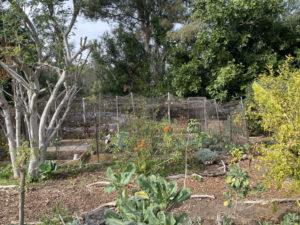
Across the border, Cheatom is attempting to negotiate a 25-year lease in Balboa Park to secure the future of the WBCC and to ensure that the community engagement continues.
“For a quarter-century, the @WorldBeatCenter has called #BalboaPark home,” posted Todd Gloria, now San Diego’s mayor, on Jan. 17, 2020 via Twitter. “It’s time for this important international cultural institution to have a long-term lease in San Diego’s crown jewel.”
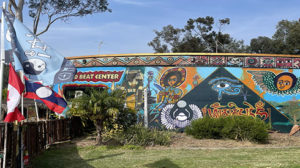
This could mean a huge step towards the long-awaited lease that the WBCC is seeking in order to secure the future of Cheatom’s lifetime work. “I’m always fighting for the downtrodden, and that’s what we all must do,” Cheatom said.
An earlier version of this story was published before it was converted from a magazine story to a web story. Changes, including to the headline, were made and it was quickly returned to the website. City Times Media regrets the error.


